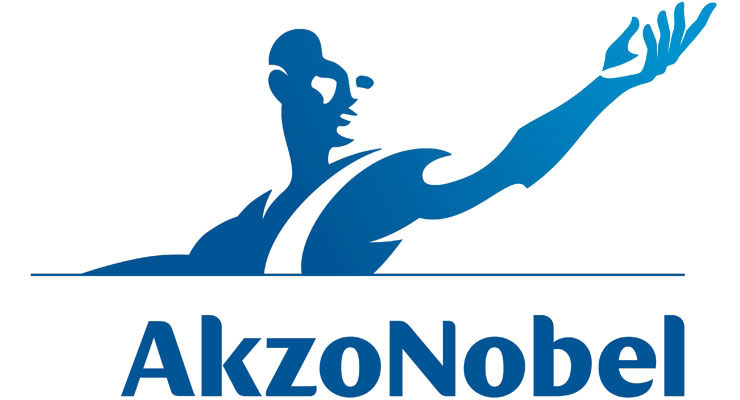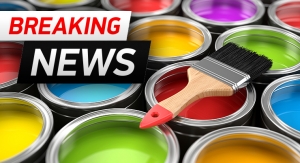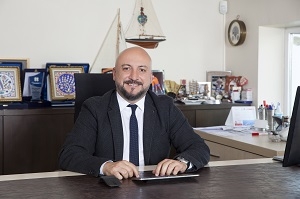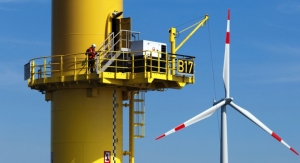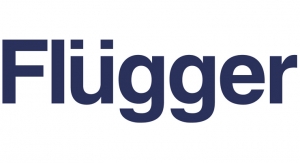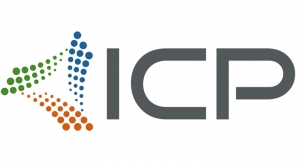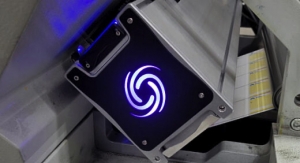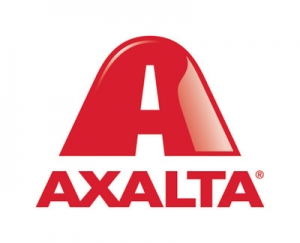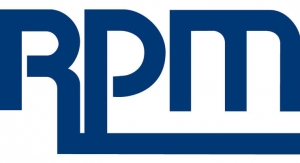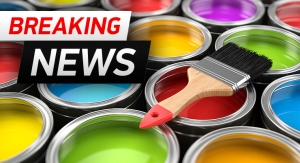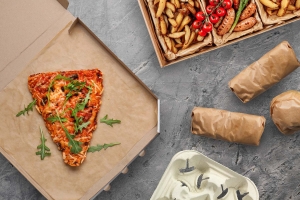Kerry Pianoforte, Editor06.02.21
Coatings World Editor Kerry Pianoforte recently interviewed Christopher Birkert, Akzo Nobel’s marine marketing manager, in an exclusive interview covering the latest trends in the industry.
CW: How did you become involved in the marine coatings industry?
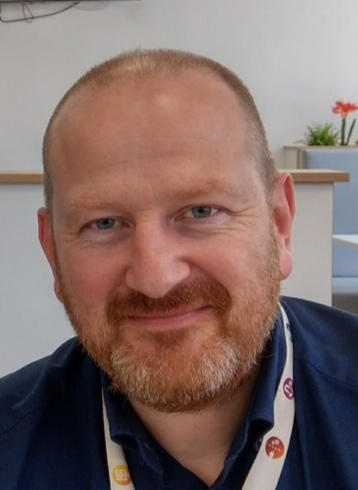
Christopher Birkert of Akzo Nobel. (Source: Akzo Nobel)
Christopher Birkert: After studying chemistry at York University, I joined the International brand in 1993 as an RDI chemist when the company was still known as Courtaulds. Five years later it was bought by AkzoNobel.
During 14 years in the role I was involved in the development of a range of products including anti-abrasion primers like Intershield® 803 and anti-corrosive Interfine primers including Interfine® 629HS, 691 and 979. A stint as EMEAR technical operations manager followed where responsibilities included in-service inspections, coating specifications and supporting the technical service team.
Before spending a decade as the EMEAR commercial manager, I spent three years as EMEAR RDI technical manager, managing the Technical Operations team in new product development and supporting the current range.
The past 18 months have seen me concentrate on identifying key sales opportunities for AkzoNobel in the marine market as marketing manager - at a time when where we have been bringing to market some of the most technologically-advanced products in our history - that provide stand-out savings for operators at the same time as helping drive down their carbon footprint.
CW: What changes have you witnessed since you began your career in marine coatings?
Christopher Birkert: The most profound change has of course been the shipping industry’s journey towards a carbon neutral future.
Amid the backdrop of a fundamental shift in the regulatory environment, recent years have seen sustainability become a fundamental concern and focus for marine coatings manufacturers. It’s prompted significant innovation as the industry develops new technology and solutions that allow operators of their global fleets to meet these requirements.
At AkzoNobel, we are proud to be one of the most sustainability-focused coatings companies operating in the marine industry, consistently ranked as the most sustainable coating supplier across multiple major global industrial indices related to sustainability performance including EcoVadis.
Around the world, our solutions have helped contribute towards ocean preservation and enabled many vessels to go biocide-free in respect of their hull coating schemes.
Bans on TBT anti-foulings and coal tar epoxy anti-corrosives in the early 2000s arguably ushered in this new era. At AkzoNobel we lead the industry in dispensing with the use of both ingredients.
Replacing them with less hazardous materials provided the first tangible proof that the marine industry was prepared to face up to the tough decisions required to ensure it took its environmental responsibilities seriously.
Since then, the coatings industry has focused more and more attention in developing increasingly environmentally-responsible products, prompting a significant rise in water-based, solvent-free and lower volatile organic content (VOC) technologies. I’m proud to say that at AkzoNobel we are strongly committed to innovating in this area, with over 40% of our new technology pipeline having improved sustainability credentials versus the industry standard.
At the same time as the industry has been making giant leaps in terms of sustainability, there’s been a general consolidation of customers into bigger owners with larger fleets, with booming Asian economies responsible for a geographical shift of the marine sector.
In addition, advances in hull strength mean there are now more operations in ice than ever before, while recent years have seen corrosion control become increasingly important.
CW: What are the most important technological innovations that have been developed?
Christopher Birkert: Advances in anti-fouling performance are among the most significant innovations in terms of technology. They have played an instrumental role in successfully preventing CO2 emissions from the global fleet from rising.
At AkzoNobel we are setting new standards of sustainability for these products. Intersleek® 1100SR from our International® brand is the only fluoropolymer foul-release coating on the market that is entirely biocide-free - ultimately helping fleet operators meet the highest of environmental standards.
It not only provides operators with a speed loss of less than 1% over a docking cycle but can also last beyond 10 years without being recoated, thus providing stand-out savings and emission reduction.
At the same time, our high-performing Intersmooth® 7476Si SPC harnesses next generation self-polishing Silyl Methacrylate technology that provides a guaranteed speed loss threshold of 1.4%.
Meanwhile big data is having an increasingly significant impact on coatings use - providing operators with a powerful real-time insight to aid operational decision making.
Our patented Intertrac® system, which uses billions of environmental data points combined with our biofouling expertise, has allowed us to provide expert insight to our customers.
By mapping vessel location against global fouling challenge zones, it provides a unique customer report giving customers the data they need to assess performance and improve future coating choice - to both minimize fuel consumption and associated CO2 emissions.
Underwater cleaning methods have also been transformed out of all recognition - as simple brush carts are now a thing of the past - replaced by ROV water jet units that reclaim any materials removed during cleaning.
The technology behind deck coatings has also undergone a similar revolution - providing previously unthinkable levels of durability and performance.
These coatings minimize product use and minimize maintenance spend for the owner. A non-skid deck coating such as Intershield® 5150LWT from our International® brand even drives down overall system weights by up to 25 percent.
CW: How have marine coatings evolved to meet environmental regulations?
Christopher Birkert: While the majority of coatings manufacturers have transformed their product portfolios to ensure that operators can not only meet, but surpass, sustainability targets, few take their environmental responsibilities as seriously as we do at AkzoNobel.
Our commitment to reducing our impact on the planet has seen us lead the coatings industry from the front by setting our ambitious 2030 carbon reduction targets. By turning sustainability ambitions into action, we are aligned to the marine industry’s carbon neutral journey while at the same time helping to improve the performance of the supply chain too.
Through key industry bodies such as the GloFouling partnership and the IMO we are actively engaged in ocean preservation by reducing our carbon footprint and delivering solutions with improved credentials.
Intersleek 1100SR is a great embodiment of our commitment to developing products that not only meet the highest of environmental standards but also move the dial in terms of savings for fleet operators.
As the highest performance biocide-free scheme in the market, it offers over 10 years of performance without the requirement of a recoat and is proven to reduce paint consumption by 77%, VOC by 86% and decrease CO2 emissions by up to 110,000 tons over multiple operation cycles, compared to biocidal SPC technology.
Its proven real-world in-service performance offers nine per cent fuel savings for LNG vessels. And, by being fully cleanable in service it also eliminates docking costs, with material removed able to be recycled and safely disposed of at anchor.
Further developments that have allowed the industry to meet changing environmental regulations include the removal of solvents from universal anti-corrosive primers which drives down VOC emissions, alongside the rise in the use of water-based coatings for internal areas.
CW: Regarding R&D, what innovations do you think will be developed to improve marine coatings properties?
Christopher Birkert: There will be both evolution and revolution in terms of product development in order to support continued sustainability improvements and to support the achievement of the industry's carbon neutral targets. As an industry we are at a historic moment - where we can tackle the climate emergency and ensure the continued health of the environment.
CW: How did you become involved in the marine coatings industry?

Christopher Birkert of Akzo Nobel. (Source: Akzo Nobel)
During 14 years in the role I was involved in the development of a range of products including anti-abrasion primers like Intershield® 803 and anti-corrosive Interfine primers including Interfine® 629HS, 691 and 979. A stint as EMEAR technical operations manager followed where responsibilities included in-service inspections, coating specifications and supporting the technical service team.
Before spending a decade as the EMEAR commercial manager, I spent three years as EMEAR RDI technical manager, managing the Technical Operations team in new product development and supporting the current range.
The past 18 months have seen me concentrate on identifying key sales opportunities for AkzoNobel in the marine market as marketing manager - at a time when where we have been bringing to market some of the most technologically-advanced products in our history - that provide stand-out savings for operators at the same time as helping drive down their carbon footprint.
CW: What changes have you witnessed since you began your career in marine coatings?
Christopher Birkert: The most profound change has of course been the shipping industry’s journey towards a carbon neutral future.
Amid the backdrop of a fundamental shift in the regulatory environment, recent years have seen sustainability become a fundamental concern and focus for marine coatings manufacturers. It’s prompted significant innovation as the industry develops new technology and solutions that allow operators of their global fleets to meet these requirements.
At AkzoNobel, we are proud to be one of the most sustainability-focused coatings companies operating in the marine industry, consistently ranked as the most sustainable coating supplier across multiple major global industrial indices related to sustainability performance including EcoVadis.
Around the world, our solutions have helped contribute towards ocean preservation and enabled many vessels to go biocide-free in respect of their hull coating schemes.
Bans on TBT anti-foulings and coal tar epoxy anti-corrosives in the early 2000s arguably ushered in this new era. At AkzoNobel we lead the industry in dispensing with the use of both ingredients.
Replacing them with less hazardous materials provided the first tangible proof that the marine industry was prepared to face up to the tough decisions required to ensure it took its environmental responsibilities seriously.
Since then, the coatings industry has focused more and more attention in developing increasingly environmentally-responsible products, prompting a significant rise in water-based, solvent-free and lower volatile organic content (VOC) technologies. I’m proud to say that at AkzoNobel we are strongly committed to innovating in this area, with over 40% of our new technology pipeline having improved sustainability credentials versus the industry standard.
At the same time as the industry has been making giant leaps in terms of sustainability, there’s been a general consolidation of customers into bigger owners with larger fleets, with booming Asian economies responsible for a geographical shift of the marine sector.
In addition, advances in hull strength mean there are now more operations in ice than ever before, while recent years have seen corrosion control become increasingly important.
CW: What are the most important technological innovations that have been developed?
Christopher Birkert: Advances in anti-fouling performance are among the most significant innovations in terms of technology. They have played an instrumental role in successfully preventing CO2 emissions from the global fleet from rising.
At AkzoNobel we are setting new standards of sustainability for these products. Intersleek® 1100SR from our International® brand is the only fluoropolymer foul-release coating on the market that is entirely biocide-free - ultimately helping fleet operators meet the highest of environmental standards.
It not only provides operators with a speed loss of less than 1% over a docking cycle but can also last beyond 10 years without being recoated, thus providing stand-out savings and emission reduction.
At the same time, our high-performing Intersmooth® 7476Si SPC harnesses next generation self-polishing Silyl Methacrylate technology that provides a guaranteed speed loss threshold of 1.4%.
Meanwhile big data is having an increasingly significant impact on coatings use - providing operators with a powerful real-time insight to aid operational decision making.
Our patented Intertrac® system, which uses billions of environmental data points combined with our biofouling expertise, has allowed us to provide expert insight to our customers.
By mapping vessel location against global fouling challenge zones, it provides a unique customer report giving customers the data they need to assess performance and improve future coating choice - to both minimize fuel consumption and associated CO2 emissions.
Underwater cleaning methods have also been transformed out of all recognition - as simple brush carts are now a thing of the past - replaced by ROV water jet units that reclaim any materials removed during cleaning.
The technology behind deck coatings has also undergone a similar revolution - providing previously unthinkable levels of durability and performance.
These coatings minimize product use and minimize maintenance spend for the owner. A non-skid deck coating such as Intershield® 5150LWT from our International® brand even drives down overall system weights by up to 25 percent.
CW: How have marine coatings evolved to meet environmental regulations?
Christopher Birkert: While the majority of coatings manufacturers have transformed their product portfolios to ensure that operators can not only meet, but surpass, sustainability targets, few take their environmental responsibilities as seriously as we do at AkzoNobel.
Our commitment to reducing our impact on the planet has seen us lead the coatings industry from the front by setting our ambitious 2030 carbon reduction targets. By turning sustainability ambitions into action, we are aligned to the marine industry’s carbon neutral journey while at the same time helping to improve the performance of the supply chain too.
Through key industry bodies such as the GloFouling partnership and the IMO we are actively engaged in ocean preservation by reducing our carbon footprint and delivering solutions with improved credentials.
Intersleek 1100SR is a great embodiment of our commitment to developing products that not only meet the highest of environmental standards but also move the dial in terms of savings for fleet operators.
As the highest performance biocide-free scheme in the market, it offers over 10 years of performance without the requirement of a recoat and is proven to reduce paint consumption by 77%, VOC by 86% and decrease CO2 emissions by up to 110,000 tons over multiple operation cycles, compared to biocidal SPC technology.
Its proven real-world in-service performance offers nine per cent fuel savings for LNG vessels. And, by being fully cleanable in service it also eliminates docking costs, with material removed able to be recycled and safely disposed of at anchor.
Further developments that have allowed the industry to meet changing environmental regulations include the removal of solvents from universal anti-corrosive primers which drives down VOC emissions, alongside the rise in the use of water-based coatings for internal areas.
CW: Regarding R&D, what innovations do you think will be developed to improve marine coatings properties?
Christopher Birkert: There will be both evolution and revolution in terms of product development in order to support continued sustainability improvements and to support the achievement of the industry's carbon neutral targets. As an industry we are at a historic moment - where we can tackle the climate emergency and ensure the continued health of the environment.

